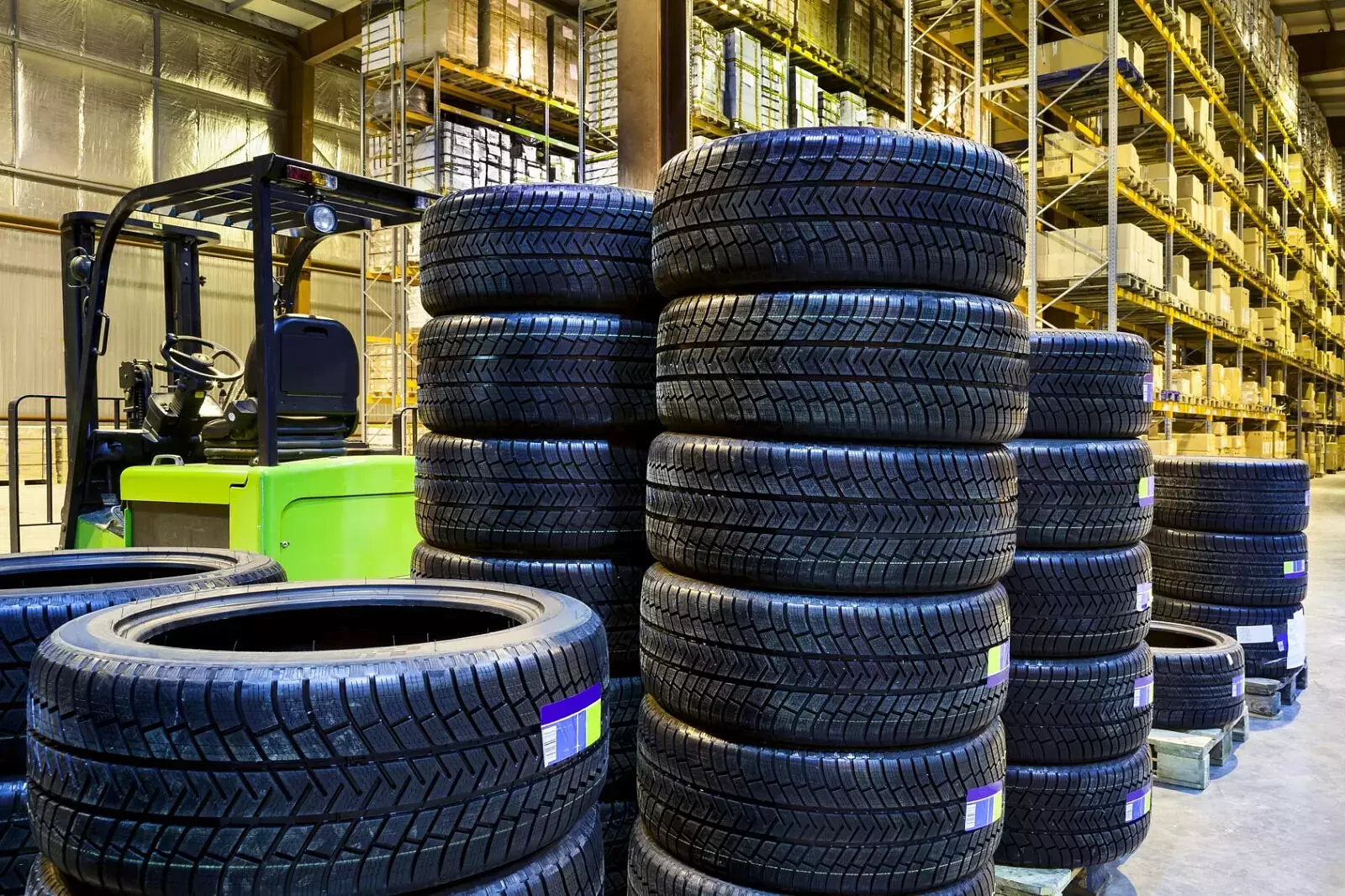 A forklift has many purposes within your warehouse or factory setting, but the tires make all the difference in how well they can get around. Whether you have a three-wheel or four-wheel machine, electric or gas fueled, there are specific types of tires a standard warehouse needs for its forklift operations. Here we will discuss three tips on choosing the best wheels for your forklift.
A forklift has many purposes within your warehouse or factory setting, but the tires make all the difference in how well they can get around. Whether you have a three-wheel or four-wheel machine, electric or gas fueled, there are specific types of tires a standard warehouse needs for its forklift operations. Here we will discuss three tips on choosing the best wheels for your forklift.
1) Know the Type of Tire you Need
This will involve a little research on your part or consultation with your forklift equipment provider, but overall the basic kinds include:
- Pneumatic
- Polyurethane
- Solid Rubber
Pneumatic tires are best for 4-Wheel forklifts because they require a large area in which to turn around in, unlike zero-radius machines that are meant for tight spaces. However, on the plus side, these types of tires accommodate a big load capacity, can be used outdoors thanks to their durability, are most comfortable to drive and are made from thick rubber with deep grooves for the best grip.
Solid rubber tires have no air, just rubber, and are best for lighter forklifts, as they can’t take too much rugged work. They have less of a turning radius than pneumatic and never deflate. Polyurethane tires are best for light duty work, and can be used on electric forklifts. They give you a superior turning radius. They feature simple installation and are meant for indoor use.
2) Consider the Type of Warehouse You Have
If you have shiny new polished concrete floors and don’t want to mark up the surfaces, there are non-marking tires that you can buy; however, their life expectancy is lower. You can get these in any of the three above mentioned tire types. What kind of care are you willing to give to the tires you choose? Pneumatic tires meant for rugged outdoor use will take more abuse and therefore more maintenance. Matching the right tire with your forklift will ensure you get the longest life out of it.
For example, don’t forget to regularly check the air pressure, use the right forklift/tire for the right application, store tires in a safe place when not using them, and get regular service from a forklift maintenance company. OSHA says a forklift inspection is required daily to ensure the parts are all in good working order, particularly the tire condition and pressure.
3) Check Out Fuel Efficiency of Each Type of Tire
Each tire type delivers a different level of power and energy consumption. Using the right kind made specifically for your forklift can significantly reduce your fuel consumption — in some cases by 10 percent — as well as reduce your maintenance costs. If you’ve got an electric forklift, the right tire will encourage a longer life expectancy of the batteries, not to mention boost production levels on a daily basis.
When you purchase your forklift, the exact match of appropriate tires will already be included. However, they will eventually need to be replaced depending on your frequency of usage. Always do your research on the best set of tires for your machine.
